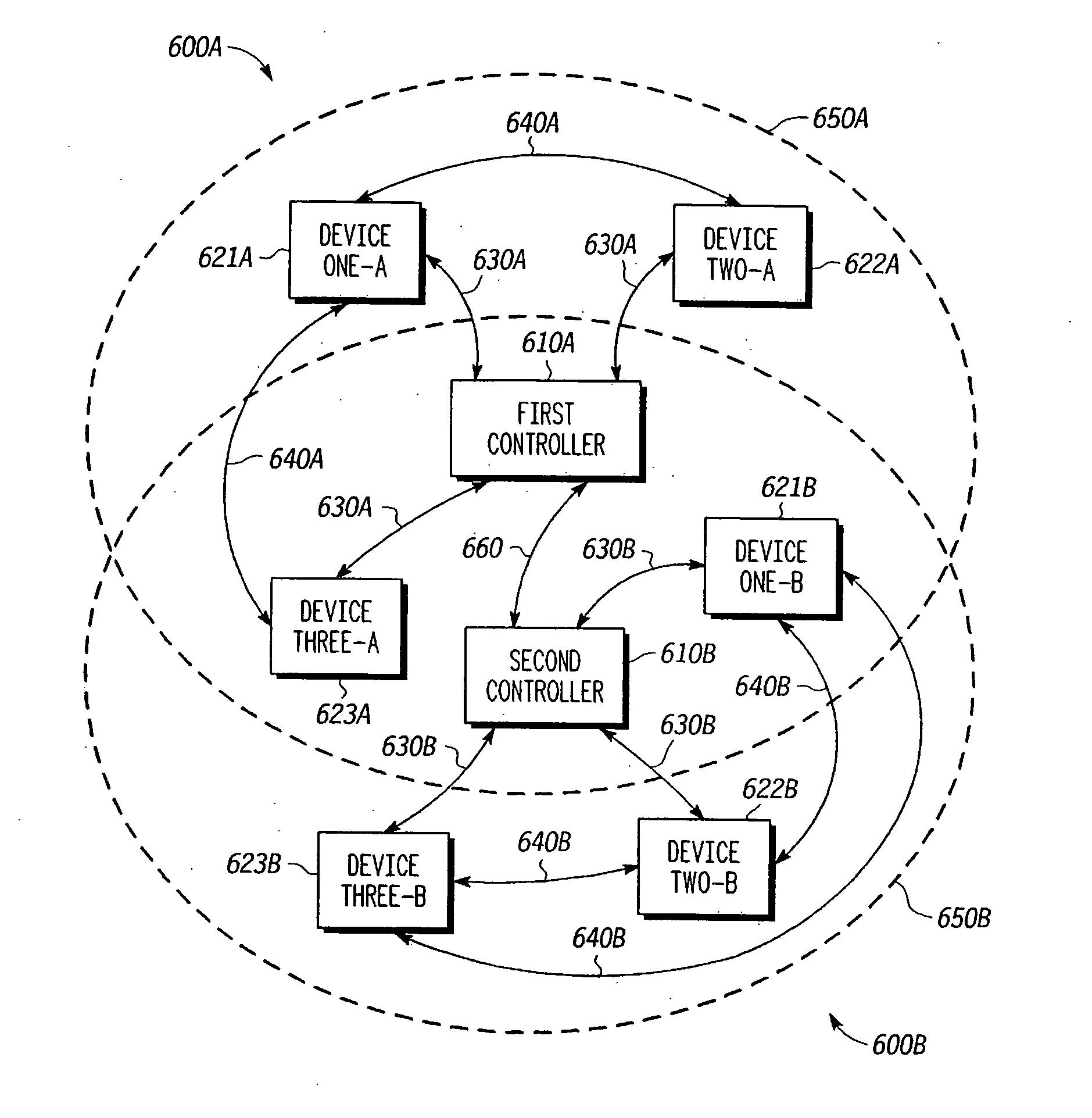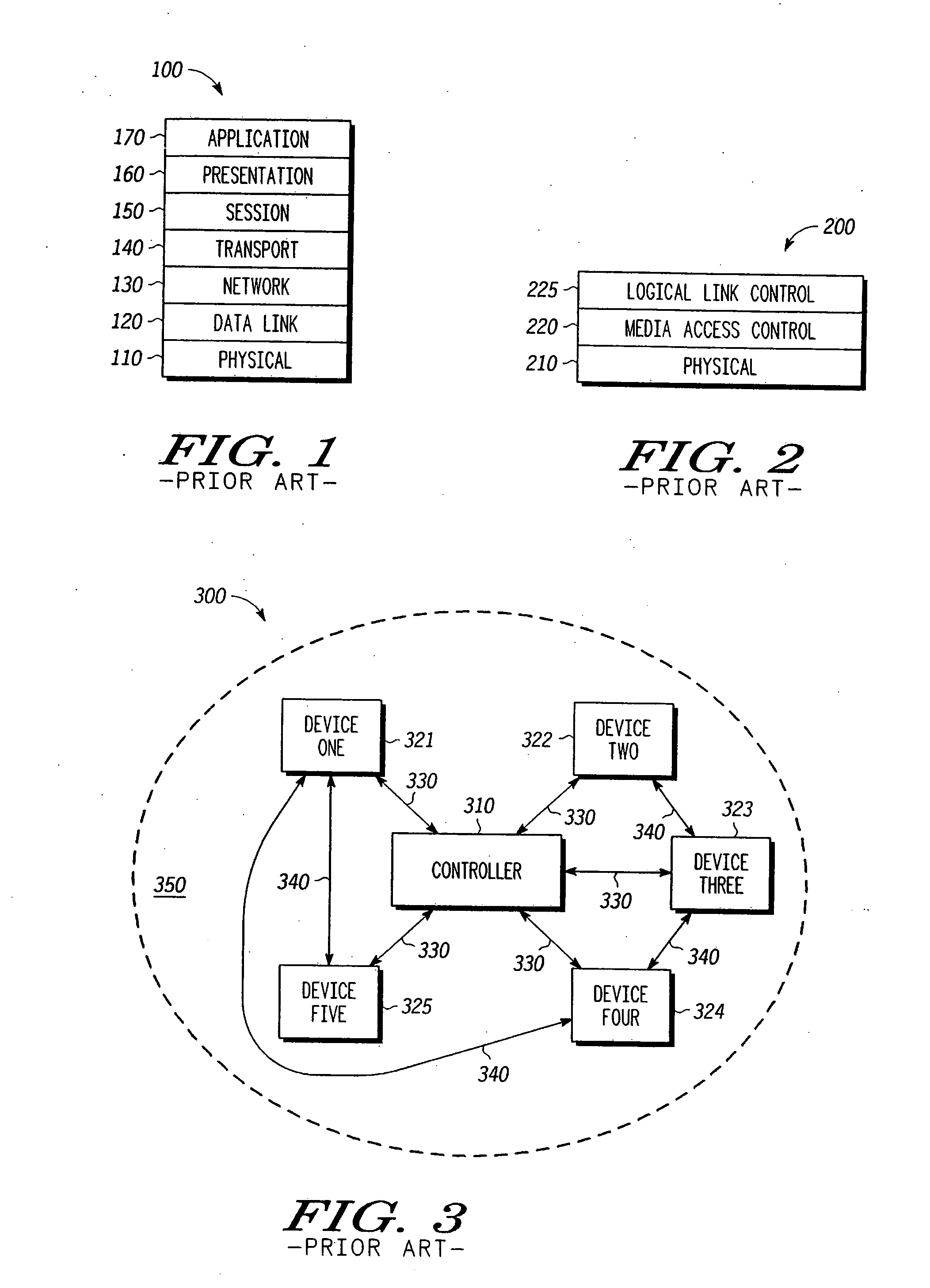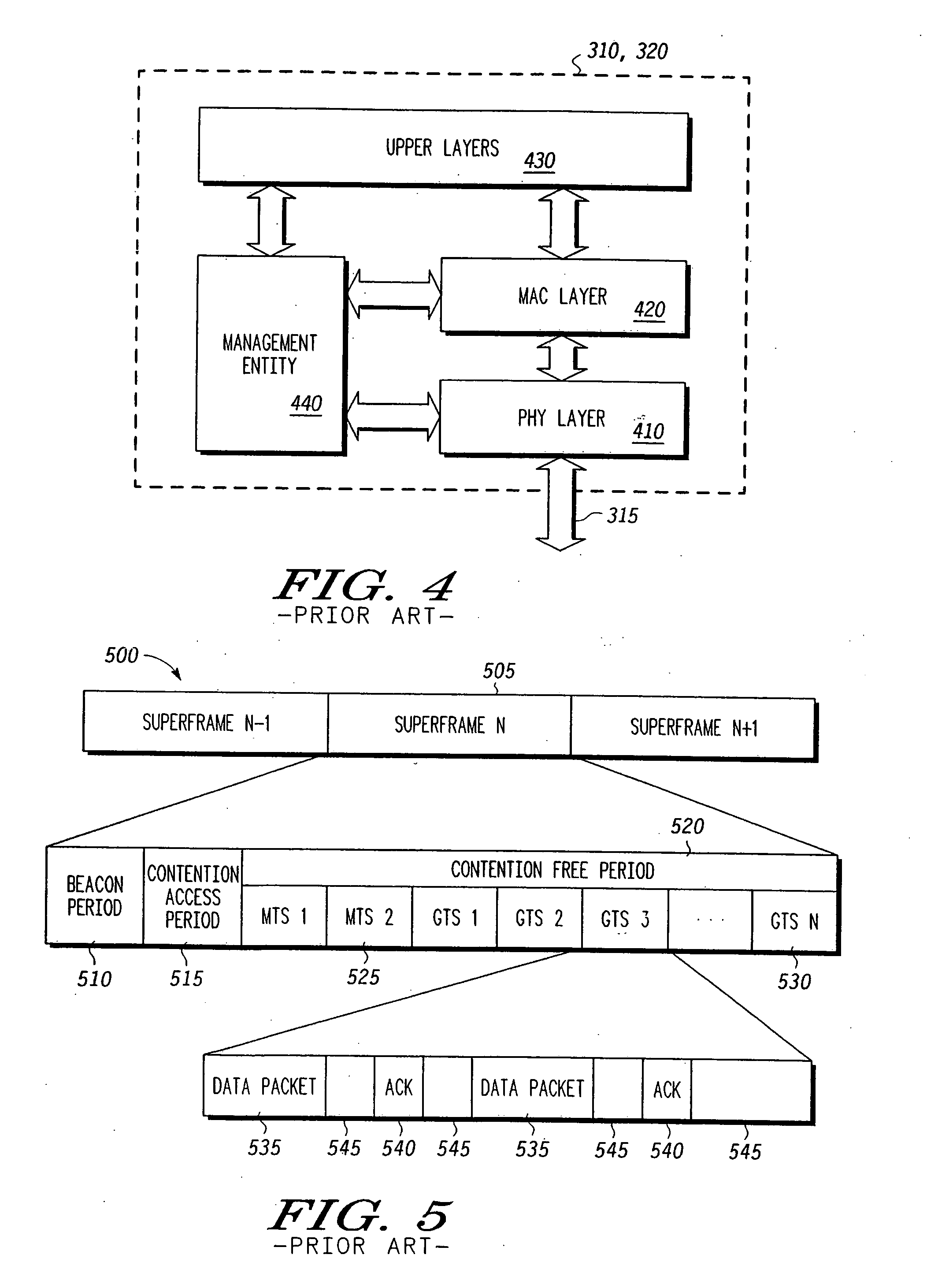Method for controlling operation of a child or neighbor network
a technology for controlling the operation of a child or neighbor network, which is applied in the direction of loop networks, data switching networks, multiplex communication, etc., can solve the problems of affecting the system, unable to transmit for the duration of the super-frame, and the failure of the receiving device in acquiring and receiving the signal, so as to avoid increasing the chance that the active device loses coordination with each other
- Summary
- Abstract
- Description
- Claims
- Application Information
AI Technical Summary
Benefits of technology
Problems solved by technology
Method used
Image
Examples
Embodiment Construction
[0076] As shown above, static time slots allow for certain advantages, but incur certain disadvantages. Primarily they prevent the interruptions in the data transmission stream because of corrupt beacons 510, but at a cost of slot assignment flexibility. Applicants will discuss below several alternative embodiments using static slots and pseudo-static slots.
Overlapping Networks Using Static Slots
[0077] Applicants present an additional implementation for static time slots—sharing of available air transmission time in overlapping networks. Consider the situation where two networks are located such that their transmission area overlaps. For example, a user may have one network in one part of his house and another network in another part of his house. These networks may overlap in part or in whole with each other's transmission area. Regardless, where they overlap, there is a potential for collisions and interference.
[0078]FIG. 6 is a block diagram of two overlapping wireless networ...
PUM
 Login to View More
Login to View More Abstract
Description
Claims
Application Information
 Login to View More
Login to View More - R&D
- Intellectual Property
- Life Sciences
- Materials
- Tech Scout
- Unparalleled Data Quality
- Higher Quality Content
- 60% Fewer Hallucinations
Browse by: Latest US Patents, China's latest patents, Technical Efficacy Thesaurus, Application Domain, Technology Topic, Popular Technical Reports.
© 2025 PatSnap. All rights reserved.Legal|Privacy policy|Modern Slavery Act Transparency Statement|Sitemap|About US| Contact US: help@patsnap.com



